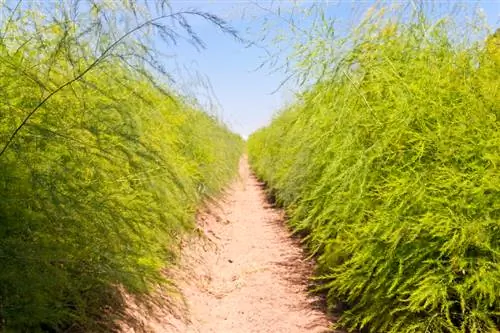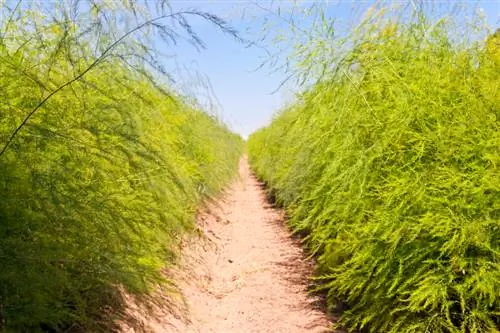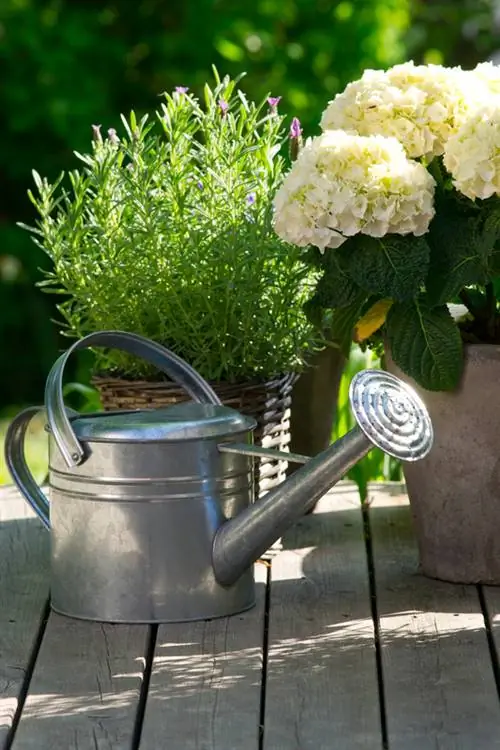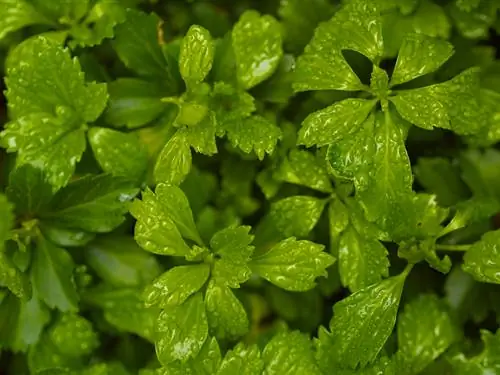- Author admin leonars@hobbygardeners.com.
- Public 2023-12-16 16:46.
- Last modified 2025-06-01 06:02.
Asparagus is a heavy feeder that stays in the same place for many years. Optimal soil preparation helps to supply the plants with nutrients. Regular fertilizer applications are necessary to improve the soil for future years.

How and when should you fertilize asparagus?
For optimal asparagus fertilization, use mature compost or manure when preparing the soil. Special asparagus fertilizer or horn shavings can be used during the growing season. After the asparagus season, diluted nettle manure or other compost is suitable as a biological fertilizer.
Soil preparation - the be-all and end-all of growing asparagus
Whether green or white asparagus - without good soil preparation you can only harvest a small amount of asparagus. To prepare the soil for growing asparagus, green manure in the previous year creates the best conditions. The plant material is simply chopped up and worked under in late autumn. It loosens the soil and releases nutrients.
In the year the different types of asparagus are planted, generous amounts of compost or manure are worked into the soil next to the actual planting rows. The fertilizer material must be ripe, fresh material can “burn” the plant roots.
Chopped shrub material, leaves and other garden debris are good for keeping the soil nice and loose.
Fertilizing during the growing season
After planting the asparagus, you can give special fertilizer for asparagus (€27.00 on Amazon) according to the instructions on the packaging. If the bed is well prepared, this is not urgently necessary.
Rake ripe compost or horn shavings carefully between the rows of asparagus once or twice. Make sure that the roots never come into direct contact with the fertilizer.
Fertilizing during the dormant period
After the asparagus season at the end of June and August, fertilization with asparagus fertilizer is carried out. Diluted nettle manure serves as a biological fertilizer. However, the odor nuisance should not be underestimated here.
After removing the asparagus weeds in late autumn, additional fertilizer applications are useful. Semi-ripe compost can now be carefully added between the rows.
Mulch material spread between the rows not only ensures that fewer weeds germinate, but also improves the soil with additional nutrients.
Suitable fertilizers for the home garden
- Mature compost
- Ripe manure
- Horn shavings
- Stinging nettle manure
- Chopped bushes etc.
- Mulching material such as hay, straw, large leaves
Tips & Tricks
If growing asparagus is really worth it, you can't avoid regular soil analysis. It is best to have the soil checked in winter to find out which nutrients are sufficient. The analysis determines what optimal fertilization looks like.






